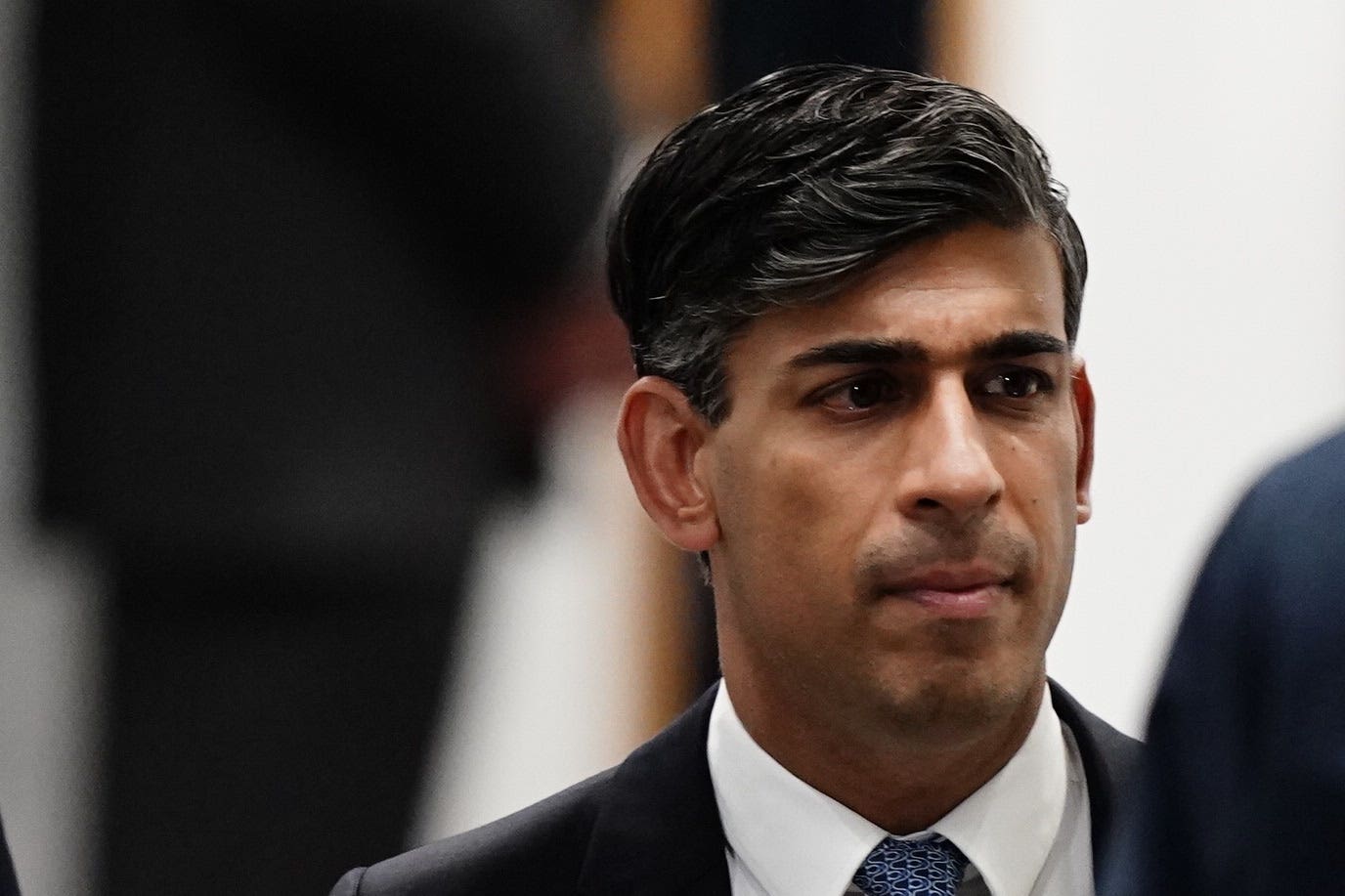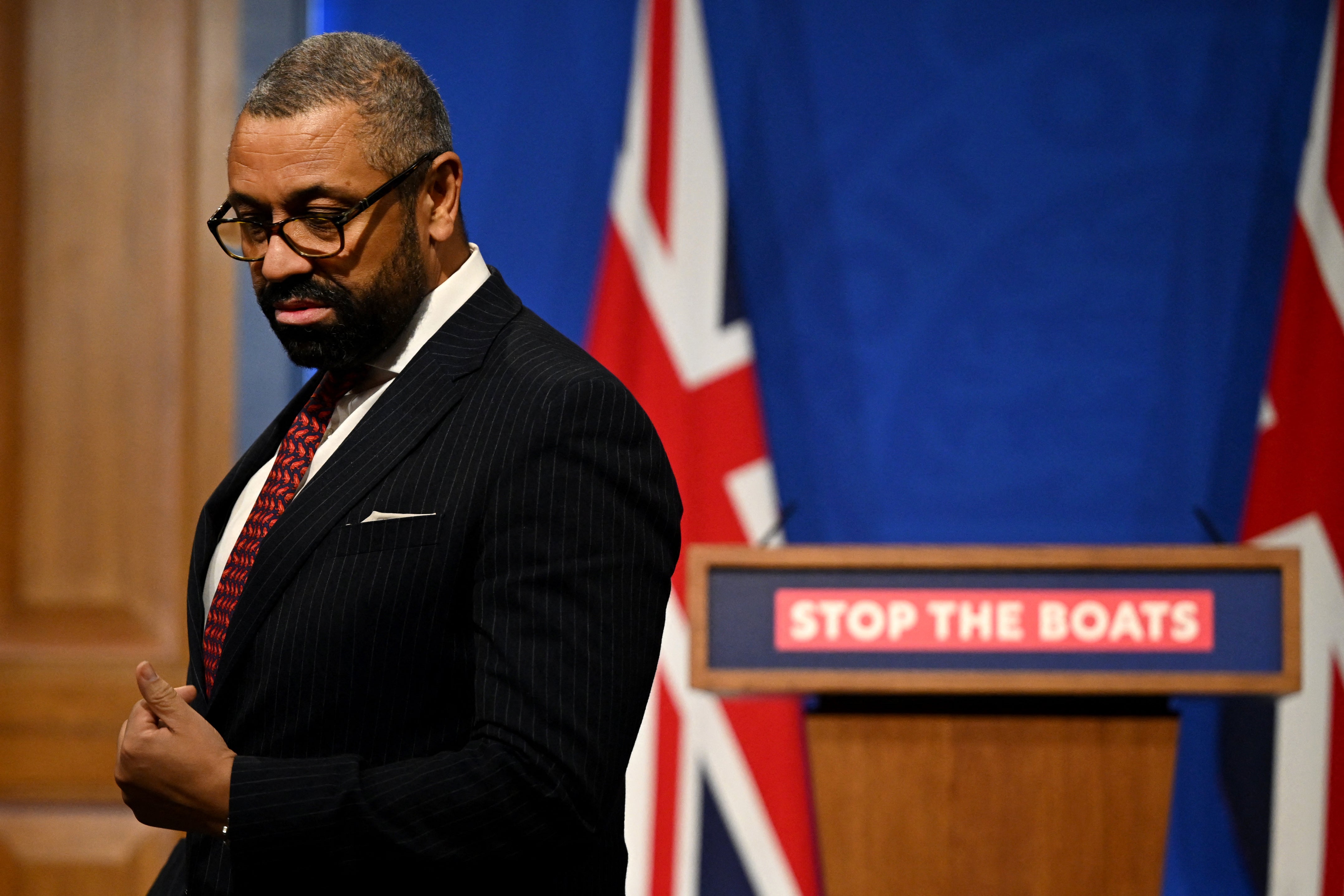Tory rebels won’t kill our Rwanda bill in new year, home secretary insists
James Cleverly says government ‘willing to listen’, as Tory right threatens to ‘kill the bill’ after Christmas
Your support helps us to tell the story
From reproductive rights to climate change to Big Tech, The Independent is on the ground when the story is developing. Whether it's investigating the financials of Elon Musk's pro-Trump PAC or producing our latest documentary, 'The A Word', which shines a light on the American women fighting for reproductive rights, we know how important it is to parse out the facts from the messaging.
At such a critical moment in US history, we need reporters on the ground. Your donation allows us to keep sending journalists to speak to both sides of the story.
The Independent is trusted by Americans across the entire political spectrum. And unlike many other quality news outlets, we choose not to lock Americans out of our reporting and analysis with paywalls. We believe quality journalism should be available to everyone, paid for by those who can afford it.
Your support makes all the difference.Home secretary James Cleverly has claimed Tory rebels won’t kill Rishi Sunak’s Rwanda bill in the new year – insisting that the faction-riven party is still “united”.
The PM faces a January showdown over his flagship deportation legislation after right-wing Tory MPs threatened to vote it down if it is not toughed up.
Mr Sunak managed to survive a crunch first vote after spending the day in talks with potential rebels – with MPs approving the bill by 313 votes to 269.
But 29 right-wing rebels defied the government whips by abstaining, and said they reserved the right to “kill the bill” when it returns next year.
Put to him that the right-wingers would vote the bill down next year, Mr Cleverly told Sky News: “I don’t agree.” He said it was “absolutely wrong” to say a lot of Tories don’t want the bill to work, and insisted the Tories were “united”.
Grilled on possible changes to keep the right happy, the home secretary said: “We of course are more than willing to listen to good faith amendments that are designed to make the bill better, keep it within the bounds of international law.”
Mr Cleverly also suggested killing the Rwanda bill is not “the best way” for potential rebels on the Tory right to act over concerns that the legislation is too weak.

Asked about European Research Group (ERG) chairman Mark Francois’s objections of the legislation, he said: “I will talk to Mark and I’ll talk to others … to understand their thinking on this and try to harvest their ideas to make things better.”
Mr Cleverly suggested that – while not wanting to leave the ECHR or the court that oversees the convention – the government would be happy to change the way it operates. “It may well be that we find ourselves in dispute with international institutions. That happens a lot,” he told BBC Radio 4’s Today.
Hardliner former home secretary Suella Braverman and her key ally ex-immigration minister Robert Jenrick, who quit last week, were among the high-profile Tories to abstain, despite being issued a three-line whip.
Ms Braverman reportedly tried to persuade MPs at the Tory rebel meeting on Tuesday to vote down the legislation now. “She felt there was an argument for voting against,” one attendee told Politico. The 40 or so who attended were said to be evenly split between abstaining or voting against.
Former party leader Sir Iain Duncan Smith and former business secretary Jacob Rees-Mogg were among the right-wingers to back the bill at the first hurdle stage.
Mr Sunak was spotting hugging Simon Hart, the Tories’ chief whip, in relief after the result. “We will now work to make it law so that we can get flights going to Rwanda and stop the boats,” the PM said.

The emergency legislation is designed to prevent migrants who arrive via unauthorised routes from legally challenging being deported to Rwanda.
It allows ministers to disapply the Human Rights Act but does not go as far as overriding the European Convention on Human Rights (ECHR), something which Tory hardliners have urged is needed for the policy to be enacted.
Mark Francois, chair of the European Research Group (ERG) of Eurosceptic Tories, announced that some leading MPs in his group and four other right-wing factions – the so-called “five families” – would be abstaining, with a view to putting forward amendments early next year.
The other factions include the New Conservatives, Common Sense Group, Conservative Growth Group and Northern Research Group.
The ERG leader said Mr Sunak had told colleagues he was “prepared to entertain tightening the bill” and that, if does not accept changes, then the five caucuses “reserve the right to vote against” the government at the next stage.
A Tory rebel source said: “This bill has been allowed to live another day. But without amendments it will be killed next month. It is now up to the government to decide what it wants to do.”
While there is scepticism about the number of MPs who attend the “five families” meetings actually willing to vote against the bill, a revolt by the 29 Tories who abstained could be enough to defeat the government.

Some right-wingers claim the 29 abstentions underestimate the number of potential rebels, unhappy with the bill, who could vote it down at the showdown third reading stage.
Others think some who abstained will back the bill when it comes to the crunch. “Almost like the right are all talk,” one Tory moderate told Politico.
“This was the moment of maximum leverage for opponents of the bill and the government rightly told them to f*** off,” another senior Tory MP who backed the bill told the FT.
No 10 has indicated it will listen to changes suggested by MPs to “tighten” the bill, so long as the basic framework remains, but has not committed to accepting amendments.
Moderate Conservative MPs in the One Nation wing agreed to back the bill this week – but have stressed that they will resist any amendments from the Tory right that would risk the UK breaching the rule of law.
Damian Green, the group’s chairman, told Newsnight the PM had secured a “pretty solid” majority for his proposal and that he hoped the “third reading would go through reasonably easily”.
“On today’s vote, the government has more or less managed the narrow landing strip that it is aiming at, and so it should stick to that landing strip,” the senior Tory moderate said.
Although most in One Nation group are assumed to be happy to keep supporting the bill, one senior Tory moderate told The Times that they plan to bring forward their own “wrecking” amendment in the new year.
Tory MP Ben Bradley said the Tories now appeared “ungovernable” over Rwanda. The right-winger, who chose to back the government, told BBC Newsnight: “You might argue it’s kind of ungovernable. This situation suggests it’s certainly not easy to govern.”
Former Supreme Court judge Lord Sumption predicted that there is likely to be a “clash” with European judges over the bill, something that would likely enrage Mr Sunak’s Tory critics.
Lord Sumption told the BBC that the bill “is contrary to international law” because it seeks to “block people off from access to the courts”.
The senior legal figure – whom the government had claimed approved of the bill – added: “Sooner or later there may be a clash with the Strasbourg (European) Court of Human Rights.”
After the upcoming committee stage, there will be a third reading vote before the Bill is sent to the House of Lords, where it is expected to face heavy scrutiny.

Join our commenting forum
Join thought-provoking conversations, follow other Independent readers and see their replies
Comments